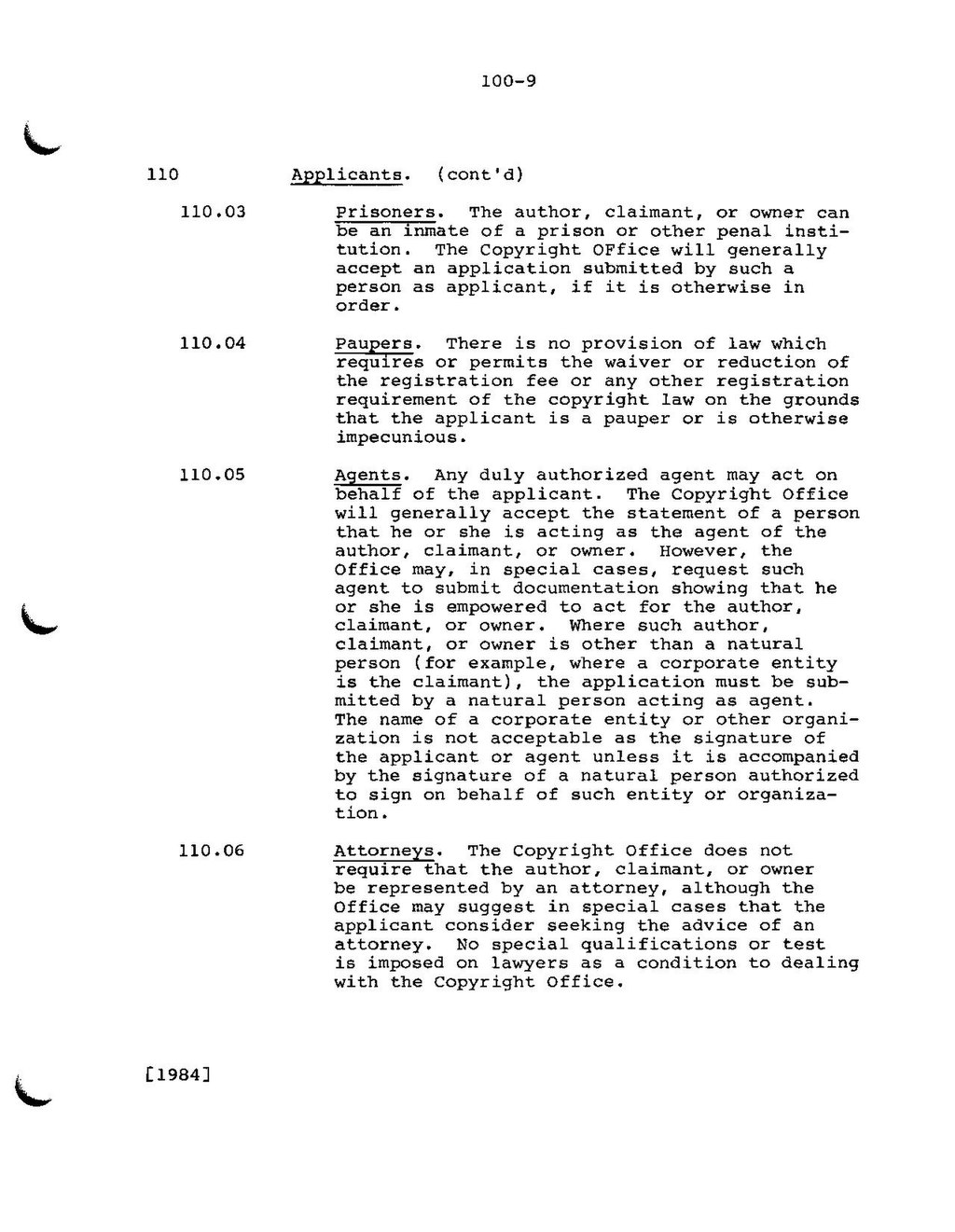100-9
110
Applicants. (cont'd)
110.03
Prisoners. The author, claimant, or owner can be an inmate of a prison or other penal institution. The Copyright Office will generally accept an application submitted by such a person as applicant, if it is otherwise in order.
110.04
Paupers. There is no provision of law which requires or permits the waiver or reduction of the registration fee or any other registration requirement of the copyright law on the grounds that the applicant is a pauper or is otherwise impecunious.
110.05
Agents. Any duly authorized agent may act on behalf of the applicant. The Copyright Office will generally accept the statement of a person that he or she is acting as the agent of the author, claimant, or owner. However, the Office may, in special cases, request such agent to submit documentation showing that he or she is empowered to act for the author, claimant, or owner. Where such author, claimant, or owner is other than a natural person (for example, where a corporate entity is the claimant), the application must be submitted by a natural person acting as agent. The name of a corporate entity or other organization is not acceptable as the signature of the applicant or agent unless it is accompanied by the signature of a natural person authorized to sign on behalf of such entity or organization.
110.06
Attorneys. The Copyright Office does not require that the author, claimant, or owner be represented by an attorney, although the Office may suggest in special cases that the applicant consider seeking the advice of an attorney. No special qualifications or test is imposed on lawyers as a condition to dealing with the Copyright Office.
[1984]
